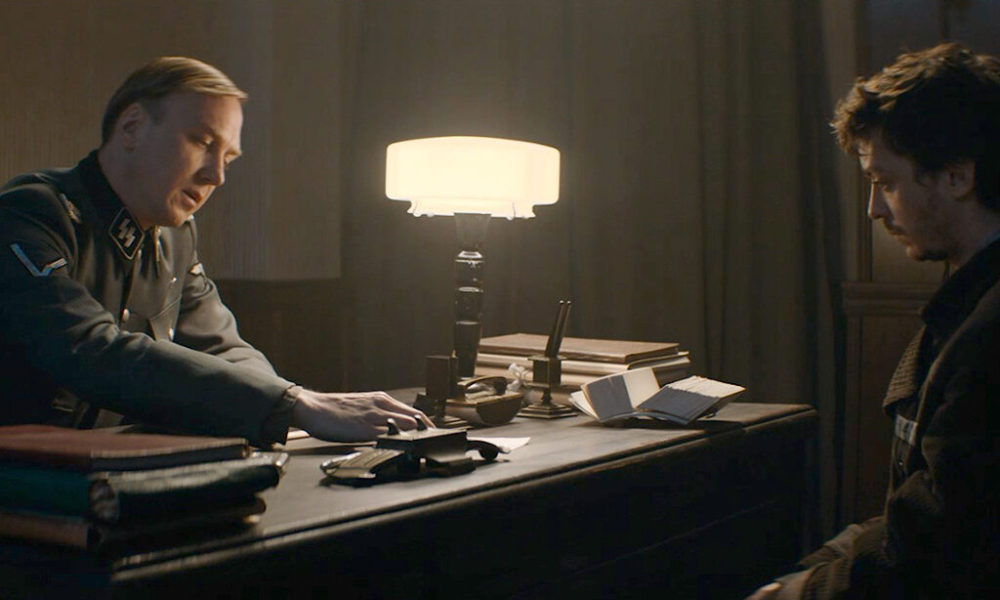Lifestyle
Teaching a language to stay alive

Could you teach someone to speak a language that doesn’t exist if your life depended on it?
This is the question which Holocaust film Persian Lessons raises, and though it may at times stretch credibility, its consideration of what it means to remember is compelling.
Directed by Ukrainian-American film maker Vadim Perelman, Persian Lessons is a unique piece of cinema which doesn’t fit neatly into the typical mould of Holocaust films. The film is based on a novella written by Wolfgang Kohlhaase, and rather than claiming to be historically accurate, presents itself as being “inspired by true events”, though without explanation.
Set in occupied France in 1942, Persian Lessons tells the story of a young Belgian man called Gilles (Nahuel Pérez Biscayart), who survives being executed by a Nazi firing squad by convincing them that he’s not Jewish, but Persian. He bases his claim on a book of Persian legends, acquired only moments before in exchange for half a sandwich. His luck holds out, and Gilles is taken to a transit camp where a culinarily inclined SS officer, Klaus Koch, (Lars Eidinger) happens to need a Persian to teach him Farsi.
Unfortunately, the Persian pretender knows only a single word in the Persian language, but he (very) easily convinces Koch (whose unorthodox post-war aspiration is to open a restaurant in Tehran) that he is up to the task. Adopting the name Reza Joon, the wily Gilles devises a gibberish tongue, drawing inspiration from the names of Jewish prisoners who are incarcerated in the camp.
Joon and Koch’s relationship develops as the language tutelage unfolds, but the former’s cover is frequently threatened not just by his own memory, but by camp staff who feel that their superior has been duped by a cunning Jew. When he’s not teaching or memorising reams of contrived words, Joon works in the kitchen or interacts with his fellow Jewish inmates, whose plight leaves him wracked with guilt.
Unlike many Holocaust films, Persian Lessons avoids especially harrowing depictions of camp life, and also aims to go beyond presenting Nazis as stock trope murderers. Unsettling though this may be, it enhances the poignancy of Nazi brutality, leaving viewers with perhaps more to contemplate.
“I wanted to show the transformation Koch goes through. He’s able to communicate things in invented Farsi language, things he couldn’t say in German, taboo things,” Perelman said in an interview. “I found it fascinating to portray the growth of this person, his humanisation, and the fact that through this language, he is able to reach and show certain parts of himself that he wasn’t able to perform in German.”
Language, too, humanises the victims of Nazi terror, their names preserved not on paper but in the dynamism of the spoken word in spite of the inherent difficulty of memorisation.
“Inventing them isn’t the problem,” Joon says of teaching his false Farsi. “It’s remembering them, that’s the issue. There will always be more.”
Holocaust memory is one of the film’s strongest themes, as observed by Perelman.
“Gilles transforming prisoners’ names into foreign-language words is immortalising them,” he says. “During the war, there were all those people who vanished completely and remained unknown because all the archives and registers of the camp were burnt by the Nazis.”
Ultimately, Persian Lessons may beggar belief at certain times, but its emotive invocation of memory and the act of remembering expressed through the metaphor of language presents a powerful and poignant message.
- Persian Lessons will be released in South Africa on 19 March.